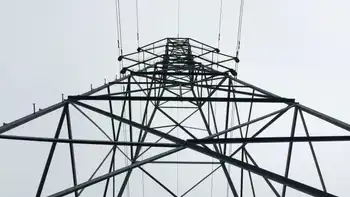Former Enron executive David Delainey sentenced to two-and-a-half years in prison for insider trading
HOUSTON, TEXAS - A former high-ranking Enron Corp. trading and retail energy executive was sentenced to 2 1/2 years in prison for insider trading in connection with the energy company's financial collapse.
David Delainey, who pleaded guilty in October 2003, had admitted to participating in schemes to manipulate earnings to please Wall Street. Prosecutors said he sold $4.25 million in stock throughout 2001 when he knew of a wide-ranging scheme to make Enron appear financially robust and inflate the company's stock.
"I'm so very sorry for my conduct," Delainey, 40, said before he was sentenced by U.S. District Judge Kenneth Hoyt.
The Canadian citizen faced up to 10 years in prison. Prosecutors had recommended he receive a sentence on the lower end of the guideline range due to his cooperation in their investigation of Enron's collapse. He testified earlier this year in the trial of company founder Kenneth Lay and former chief executive Jeffrey Skilling.
His defense attorney, John Dowd, asked Hoyt to give his client probation, adding that Delainey had already made restitution — agreeing to pay $4.25 million to the Justice Department and $3.74 million to the Securities and Exchange Commission — and had suffered public humiliation.
"He never gave in to the temptation to cover up," Dowd told Hoyt. "He made an extraordinary effort to tell the whole truth."
Prosecutor Kathryn Ruemmler told Hoyt that Delainey's help in their investigation of Enron's collapse was "critical to the case" and he was always forthcoming with information.
"He has never wavered from accepting responsibility for what he did," she said.
But Hoyt dismissed the request for probation, telling Delainey that any public humiliation he had faced was "a consequence of your conduct, not a punishment for it" and that any punishment he handed down would have to be a reflection of all of Delainey's actions and not just of the specific crime he pleaded guilty to.
"You and I know that this conduct (regarding) the Enron scheme is a lot deeper, a lot wider, even on your part," he told Delainey, who agreed.
Hoyt also ordered that Delainey, who had been free on his own recognizance, be taken into federal custody immediately.
After the court hearing ended, Delainey held his crying wife Dawna's hand for a few minutes before he was escorted away.
Hoyt also ordered that Delainey pay the SEC another $60,000 to be given to victims of Enron's collapse.
Enron crumbled into bankruptcy proceedings in December 2001, obliterating thousands of jobs and $60 billion in market value.
In February, during the trial of Lay and Skilling, Delainey testified he reluctantly acquiesced to a Skilling-approved plan to hide $200 million in losses.
Delainey ran the wholesale trading franchise until 2001, when he was chosen to take the helm of a highly touted retail energy unit, Enron Energy Services. Delainey testified Skilling gave the go-ahead to a plan to move the retail unit's trading arm into the larger trading franchise to hide the losses.
Delainey also said Enron wrongly dipped into reserves from the company's wholesale division to meet and beat earnings targets under pressure from Skilling.
Lay and Skilling's 16-week trial ended in May when a federal court jury convicted the two men.
Skilling, who faces sentencing Oct. 23, was convicted of 19 counts of conspiracy, securities fraud, lying to auditors and insider trading. Jurors acquitted him of nine counts of insider trading regarding a series of Enron stock trades in 2000.
Lay was convicted of six counts of conspiracy, securities fraud and wire fraud and in a separate case was convicted by a federal judge of one count of bank fraud and three counts of making false statements to banks.
He died of heart disease July 5 while vacationing with his wife in Aspen, Colo. Lay's attorneys have filed motions arguing that his death "necessitates" erasing his convictions. Prosecutors are hoping that Congress passes legislation that will prevent Lay's record from being wiped clean due to his death.
Related News

Africa's Electricity Unlikely To Go Green This Decade
LONDON - New research today from the University of Oxford predicts that total electricity generation across the African continent will double by 2030, with fossil fuels continuing to dominate the energy mix posing potential risk to global climate change commitments.
The study, published in Nature Energy, uses a state-of-the art machine-learning technique to analyse the pipeline of more than 2,500 currently-planned power plants and their chances of being successfully commissioned. It shows the share of non-hydro renewables in African electricity generation is likely to remain below 10% in 2030, although this varies by region.
'Africa's electricity demand is set to increase significantly…




